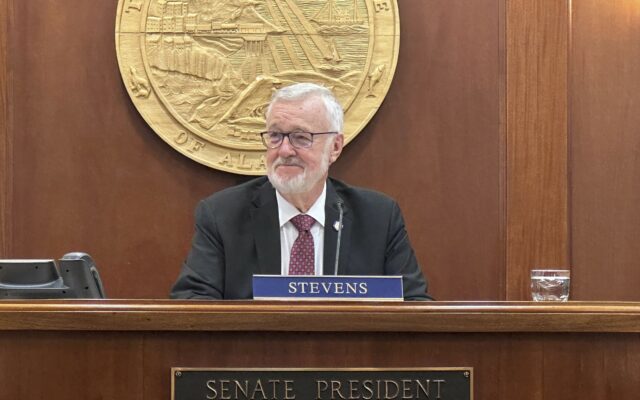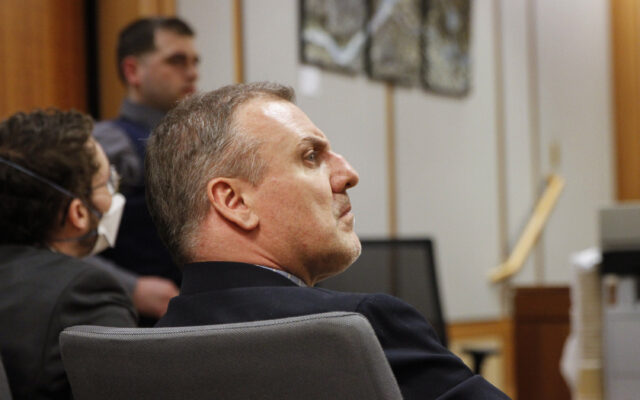Alaska lawmakers open new session with House failing to support veto override effort

JUNEAU, Alaska (AP) — Alaska lawmakers opened a new legislative session Tuesday, with the House failing to support an attempt to override Republican Gov. Mike Dunleavy’s veto of $87 million in additional education funding last year.
Under the state constitution, the Legislature has the first five days of the regular session for a veto override attempt. If a joint session were held to consider a veto override, three-fourths of lawmakers — or 45 members — would need to vote in favor of an override for it to be successful.
House Minority Leader Calvin Schrage, an Anchorage independent, proposed Tuesday that the chamber meet in joint session with the Senate Thursday to debate a veto override, but that motion failed on a 20-20 vote. Schrage later noted the close vote and left open the possibility that the issue could be raised again before the window closes.
Lawmakers last year passed a one-time funding boost of $175 million for K-12 schools but Dunleavy vetoed half that amount after the Legislature adjourned. School officials have pleaded for a permanent increase in the per-pupil school funding allocation, citing the toll of inflation on their budgets.
A House committee on Wednesday plans to hear a draft rewrite of a measure that began as a school internet bill that would include other education-related provisions, including a $300 increase in the per-pupil allocation and Dunleavy’s proposal that would over three years pay teachers a bonus as a way to retain them.
Schrage said the proposed increase in the per-pupil allocation in the draft falls short of what schools need.
Rep. Craig Johnson, an Anchorage Republican and chair of the House Rules Committee, which plans to hear the draft, said the proposed increase is a starting point and could be changed through the amendment process.
“We hope it’s something that can allow the schools to plan a little further out,” said Johnson, a leader of the Republican-led House majority. “One thing I’ve learned about education is we don’t have enough money to fund everything everybody wants.”
The draft also addresses the process for charter school applications and correspondence study funding.
Earlier in the day, before the draft was announced, Senate President Gary Stevens, a Kodiak Republican, told reporters his bipartisan caucus supports an increase in the per-pupil funding allocation and was waiting to see what the House does.
“We’re encouraging them to send us a bill that we can work on and deal with and hopefully agree to,” he said.
You Might Also Like



